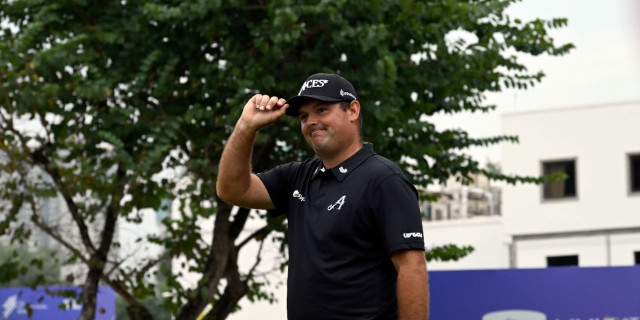
Understanding the FedEx Cup System
 Hands up if you understand the FedEx Cup. I follow this great game of ours closely and I haven't the foggiest idea how it works. I thought I did, but then Rory McIlroy won two of the four playoff events and didn't pick up the $10m bonus – that went to Brandt Snedeker, who only won the final event.
Hands up if you understand the FedEx Cup. I follow this great game of ours closely and I haven't the foggiest idea how it works. I thought I did, but then Rory McIlroy won two of the four playoff events and didn't pick up the $10m bonus – that went to Brandt Snedeker, who only won the final event.
So, assuming that most of you guys out there are as confused as I am, I decided to check out the PGA Tour website for an explanation. Here goes...
Leading up to the playoffs there are 33 counting events, including the majors. If a player wins a major, he collects 600 points. For reasons that I fail to understand, he also gets 600 points if he wins The Players Championship. Winners of World Golf Championship events get 550 points and regular tour event winners get 500 points. There are also points awarded all the way down to 70th place.
So here's my first problem with the system. Why is there only 100 points difference between winning a major, which is not only the most coveted prize in golf but also the most difficult to win on account of the quality of the field, and a run-of-the-mill event where no members of the world's top 10 are present? To me, it makes no sense.
With five wins to his credit, nobody would argue that Tiger Woods was deservedly in front when the the top 125 players arrived at The Barclays in New York. The top 100 then went forward to the Deutsche Bank championship, the top 70 to the BMW in Chicago and the top 30 to the Tour Championship at East Lake, at the end of which somebody will be given a cheque for a cool $10m – that's on top of the money he has won in each of these four tournaments. Did I mention that there is an $8m prize fund at each event? There is an $8m prize fund at each event. Remember, the Tour Championship has a field of just 30. Do the maths!
You would be forgiven for thinking that when the playoffs begin, all the points the players bring with them are reset to zero. You would be wrong – and that explains why, despite finishing in 67th playing in Boston, Woods remains in second place. Tiger has, of course, won the FedEx Cup twice, in 2007 and 2009. Vijay Singh won in 2008, Jim Furyk in 2010, Bill Haas in 2011 and Snedeker last year.
These four events offer quintuple points when compared with the regular season. Adam Scott won in New York and finished 53rd in Boston, yet fell from second to third. Henrik Stenson, 41st in New York and the winner in Boston, topped the list after two events, with Woods second.
Are you keeping up with this? Is it all becoming crystal clear or is your brain fuzzing over? Mine too.
When the top 30 arrive at East Lake, the points are reset, with players seeded from one to 30. By my reckoning, that means if you win the Tour Championship you are pretty much guaranteed to win the whole shooting match, so somebody who has just sneaked into each tournament by the skin of his teeth could end up walking away $10m richer.
Call me old-fashioned if you like, but if that is the way it works (and I am still not sure that I have fully grasped it), then why not just stage a tournament for the top 30 on the money list and get the thing done in one hit – at least that way, everybody would understand it.
At this point in proceedings, the dull ache I felt in my head when I began writing has now turned into a full migraine.
This what it says on the PGA Tour website:
“The FedExCup Playoffs consist of four events immediately following the PGA TOUR Season—The Barclays, Deutsche Bank Championship, BMW Championship and the TOUR Championship by Coca-Cola. The PGA TOUR Season points standings determine the top-125 players who qualify for the first event, The Barclays. Each playoff event offers 2,500 points (quintuple the PGA TOUR Season). The second event, the Deutsche Bank Championship outside Boston, will have a 100-player field. The third tournament, the BMW Championship in Chicago, will have 70 players (with no cut). The finale, the TOUR Championship by Coca-Cola in Atlanta, will be comprised of the top-30 qualifiers following the BMW Championship.
Following a points reset, those players will compete for the FedExCup, with one to be crowned the FedExCup champion. Each tournament will have an $8-million purse in addition to the $35-million FedExCup bonus pool.
Note: In case of ties, reset points will be distributed between the tying positions using the same methods for dealing with ties during events—the total points for each of the tying positions are divided equally among all players in the tying position. In the event that a player who qualifies for a Playoff event chooses not to play in that event, there will be no alternates, and the field will be shortened. FedExCup points are subject to change.”
What I really can't get my head around, however, is how, after two events, Graeme DeLaet, of Canada, finds himself in fifth place, ahead of the likes of Phil Mickelson, Justin Rose and Jordan Speith. DeLaet hasn't won a single tournament in 2013, but I am guessing that he is already a shoo-in for the top 30 and that if he comes out on top in the Tour Championship then he will pocket the dosh. That migraine is really starting to do my head in now.
From what I can understand, Tiger remains second because of the points he brought into the playoffs. Fair enough. If he has been the most successful player on tour then he deserves to be up there. Or so some would argue. But here's another possible scenario. Let's say he wins The BMW, but finishes 30th at the Tour Championship. Logic would dictate that he would still be top dog, surely?
Ha! Logic has nothing to do with it. Nobody wants somebody who finishes 30th being crowned playoff champion (apparently). I've just called for an ambulance because my head is really hurting now.
When Singh won in 2008, he already had enough points in the bank to know that, no matter what happened in the final tournament, he would win the bonus. That simply wouldn't do, so they changed the rules. And that, finally, explains why McIlroy's two victories in 2012 were not good enough – he just won the wrong two tournaments, that's all.
So when the 30 chosen ones arrive at East Lake, the points are reset so that the top player has 2,500 points, the second has 2,250, all the way down to the guy in 30th, who gets 210 points. Those of you who have been keeping up will remember that quintuple points are on offer, meaning that the winner gets 2,500 points. It all boils down to the fact that the Tour Championship is heavily weighted in favour of the guys who occupy the top five places when the tournament begins.
But there's more. Back in 2007, most of the bonus money was paid into a tax-deferred retirement account. Then somebody worked out that if Woods won it six times, he would have a retirement fund approaching $1 billion. Clearly, that would never do, so now the winner gets $9m up front with “only” $1m going into his retirement fund. However will they manage in their old age?
And I am sorry, but that is the best I can do. If you can figure it out any better than I have, please contact me in hospital, because my ambulance has just arrived. If I recover, at some point in the future I will endeavour to explain the European Ryder Cup qualifying points system. Now that really is confusing!
Derek Clements is a sports journalist with a particular passion for golf with over 12 years of experience covering golf and other sports including Chief Sub-Editor on the sports desk of The Sunday Times. To contact Derek email direct via [email protected]
Related Articles

Be part of the action with a selection of unique golf tournament experiences, from playing in a pro-am with the stars to watching the action at golf’s most illustrious events. Whether it’s the Masters or The Open, The Ryder Cup or WM Phoenix Open, build your own bespoke package with the experts at Golfbreaks.com.









